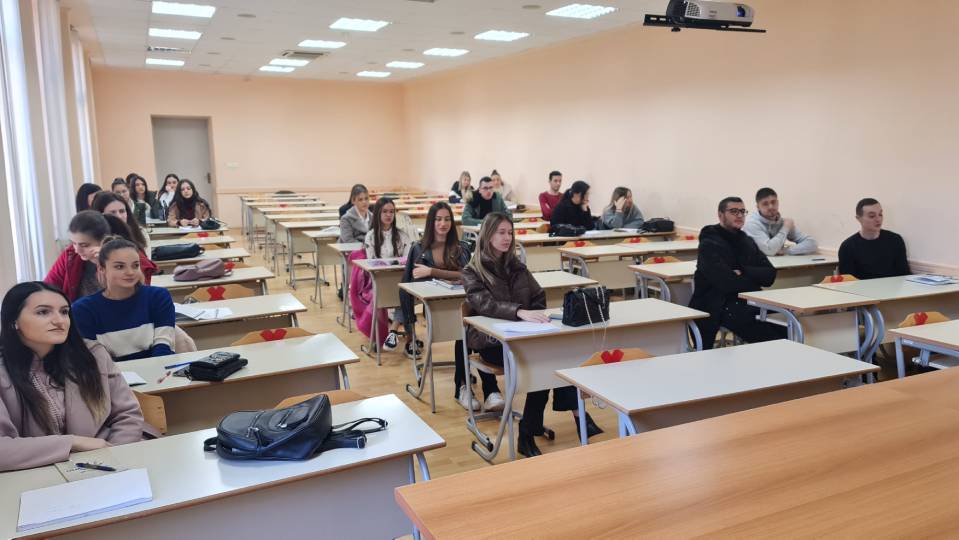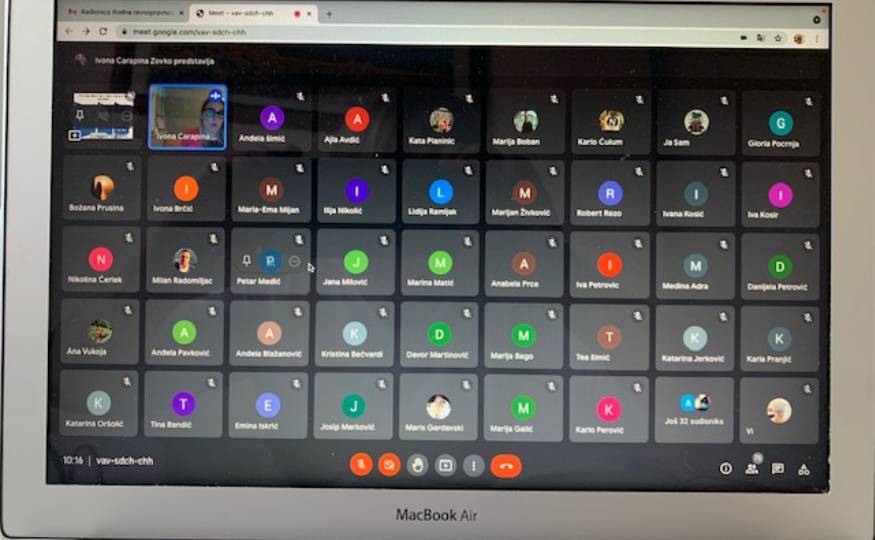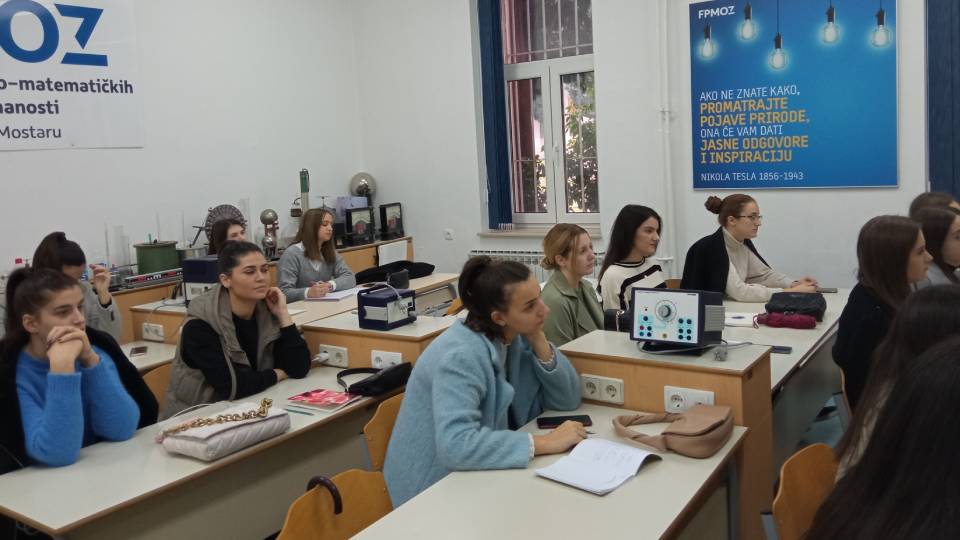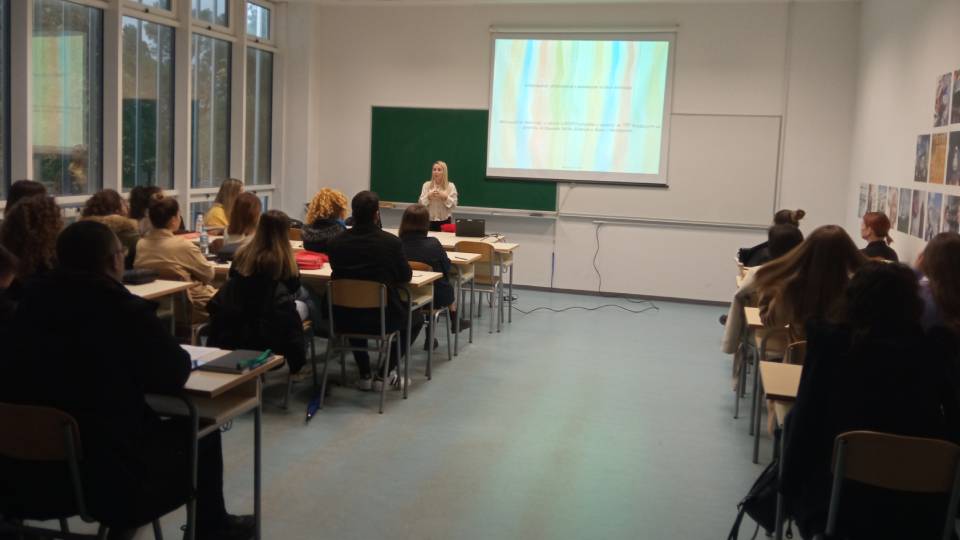Nov 2021
UNIGEM: 16 DAYS OF ACTIVISM - UNIVERSITY OF MOSTAR

A workshop on Information and Introduction to the 16 Days of Activism Campaign was held at the Faculty of Philosophy, University of Mostar on November 22nd. 2021. The workshop was attended by 30 psychology students, 4 of whom expressed interest in active involvement in the project.
The workshop of the same name was held on November 22. at the Faculty of Natural Sciences, Mathematics and Education in duration. The workshop was attended by 17 students of the pedagogy study group.
During the workshops, students were introduced and informed in more detail about the activities within the project 16 Days of Activism and the role of students in taking over and implementing activities. The workshops were led by doc. dr. sc. Ivona Čarapina Zovko.
The second workshop on gender equality in the labor market was held online via the Google Meet platform on Wednesday, November 24th. 2021. The workshop was attended by 75 students of the Faculty of Philosophy (various study groups), Faculty of Civil Engineering, Law, Economics and Agriculture, University of Mostar. The workshop was led by prof. dr. Davorka Topić Stipić and doc. dr. sc. Ivona Čarapina Zovko.
The workshop was divided into two parts: in the first part students were introduced to the project (goal, purpose, activities, duration, opportunities), and in the second part of the workshop participants were introduced to terms of gender equality in the labor market, theories and indicators of discrimination on the labor market and the results of some research in Bosnia and Herzegovina. Finally, practical experiences and guidelines for reduction and prevention were shared. Eventually, a discussion developed with students who themselves had experience of discriminatory questions in job interviews.
Through the third workshop, students were introduced to the concept of gender equality, the legal framework governing gender equality in Bosnia and Herzegovina, as well as the current state of gender equality in Bosnia and Herzegovina and examples of direct and indirect discrimination in practice. The workshop was attended by 26 law students. The workshop was led by doc. dr. sc. Zlatko Brkić.
Workshop participants believe that the legal framework for gender equality in Bosnia and Herzegovina is the result of attempts to achieve internationally recognized standards in this area. The relatively satisfactory normative situation in Bosnia and Herzegovina does not follow its realization in legal practice, so that in a number of social relations gender equality is not achieved in the way that a modern democratic society should achieve them. There are great differences in achieving gender equality in BiH in different areas of social life, although the situation is much better now than in the recent past.
Different types of discrimination - which may seem harmless at first glance - often open up opportunities for other, more severe forms of discrimination and therefore society should reject them at the outset. Discrimination also has negative consequences for the economy. One of the often omitted and unmentioned segments of discrimination and gender inequality is economic gender inequality, ie gender equality in the labor market.
Participants showed interest in understanding the concept of glass ceiling - how it is created and how it can be overcome. The general conclusion was that in the field of gender equality in the labor market, we still have a lot of activities of all actors at different levels - and the legislative framework and business culture, but also changing the paradigm in the public sphere.
Participants highlighted several areas of discrimination: discrimination in employment and employment (standard division into male and female occupations), unequal income for jobs of equal value and the inability to make equal progress; discrimination in sports - unequal pay, rewards and recognitions and common stereotypes about men's (football) and women's (dance) sports; media discrimination - women in advertising cleaning products, household appliances and food products.
























